Walter Benjamin
Walter Benjamin

The Storyteller
The Storyteller gathers for the first time the fiction of the legendary critic and philosopher Walter Benjamin, best known for his groundbreaking studies of culture and literature, including Illuminations, One-Way Street and The Arcades Project. His stories revel in the erotic tensions of city life, cross the threshold between rational and hallucinatory realms, celebrate the importance of games, and delve into the peculiar relationship between gambling and fortune-telling, and explore the themes that defined Benjamin. The novellas, fables, histories, aphorisms, parables and riddles in this collection are brought to life by the playful imagery of the modernist artist and Bauhaus figure Paul Klee.
And more

Cyclamen
A debut collection from the poet, artist and designer, a suite of unfaithful translations/transversions of works drawn from Baudelaire’s Les Fleurs du mal / Flowers of Evil, a bunch of flowers in decay, pressed and frayed, ‘a flock of pockmarked words.’
Through these creative ‘translations’ of Charles Baudelaire, Alix Chauvet—artist, designer, poet—refuses fidelity in favour of flirtation: her ‘flowers of evil’ line Amsterdam’s canals, drink from the same rainclouds as Rachel Ruysch’s bewitching bouquets, sprout through peat, and are tended by a distinctly feminist and nomadic sensibility. Chauvet—akin to Olive Moore, Sean Bonney and Lisa Robertson—takes the nineteenth-century French decadent as a contemporary accomplice for aesthetic and linguistic misbehaviour. Walter Benjamin once wrote of Baudelaire that he is ‘der geheime Architekt der Moderne,’ and in Chauvet’s hands, those foundations are made porous, unbuilt into cast shadows, into ribbons, into veins streaming across the page. Accompanied by scans of the French poems and Chauvet’s shadow photography, what Cyclamen ultimately offers us is a regenerative rewilding of the English language: a wondrous terrain ringed by vines of unruly syntax and dotted with the fruit of words refusing domestication by any single tongue. — Mia You
Alix Chauvet is a Swiss-French poet and graphic designer based in Amsterdam, taking pleasure in the possibilities of translation. She received her BA in Graphic Design from the Gerrit Rietveld Academie (Amsterdam, 2020), and has since been working independently and in collaboration with contemporary artists. Investigating the relationships between language and body, intimacy and collectivity, past and contemporary, her hybrid practice covers a wide range of visual and linguistic experiments from artist’s book design to experimental translation. Her method is rooted in decelerating the creative process through the use of analogue and unprofitable techniques such as cut-outs, letterpress, linocut, handwriting and painting. Chauvet’s poetic approach follows the same logic, prioritising English over her mother tongue as a way to revise language with both critical detachment and a degree of identification. Her poems have appeared in literary magazines such as Blackbox Manifold, and Cyclamen is her debut collection.

Karl Marx in Karlsbad
The first complete translation of Egon Erwin Kisch's Karl Marx in Karlsbad. Originally written in 1946, this book recounts Marx's visits to the spa town of Karlsbad (now Karlovy Vary in Czechia) in 1874, 1875 and 1876.
Karl Marx spent three consecutive summers in the spa town of Karlsbad (now Karlovy Vary in the Czech Republic) in 1874, 1875 and 1876. Egon Erwin Kisch's 1946 text Karl Marx in Karlsbad reconstructs these three stays.
When Marx arrived in Karlsbad to take the waters for the first time, he was suffering, tired, tense, overworked and overly nervous, in other words, he was burnout. Years of political and theoretical work under agonising hardship and constant oppression had left Marx with pleurisy, inflammation of the lungs, inflammation of the nerves in his head, a carbuncle, a lung abscess and sciatica. Marx's recovery in Karlsbad, surrounded by princes, ministers, aristocrats, chamber singers, adventurers, spies, and courtesans, is a story full of amusing anecdotes and surprises.
E.E. Kisch, described by Anna Seghers as a "detective," investigated this lesser known period of Marx's life and resolved some mysteries of international importance.
For the first time fully translated, the essay is introduced by its editor, Sezgin Boynik, presenting Kisch within the context of interwar leftist avant-garde internationalism. The afterword by Sam Dolbear and Hannah Proctor revisits the emotional life of Marx and his daughter Eleonor during their visits to Karlsbad, without insulating them from the forces of history. Dolbear and Proctor are both writers and researchers, who have previously worked together on an essay on revolutionary childhood, as co-editors of a series of pamphlets on Walter Benjamin's Arcades Project, and on dreams, sleep, work, puppets, play, and proletarian children's theatre.
Designed by Ott Kagovere, the book features etchings and photographs of Karlsbad from the 19th century, as well as a colour reproduction of Christian Schad's portrait of Kisch with tattoos.
Egon Erwin Kisch (1885-1948) was an Austro-Hungarian and Czechoslovak writer and journalist, who wrote in German.
Foreword by Sezgin Boynik; afterword by Sam Dolbear and Hannah Proctor.

The Mirror of Simple Souls
In her first book of poems, Leah Flax Barber revives an actress figure of the commedia dell'arte to consider her own destiny as a soon-to-be historical subject. Taking its title from Marguerite Porete's fourteenth-century Beguine classic, The Mirror of Simple Souls embodies the metaphysical thorniness of the book-as-object through sources as wide-ranging as Renaissance theater, Low German and Old French mystical texts, Kate Bush lyrics, and the melancholy dialectics of Walter Benjamin. In Flax Barber's stark, brutally compressed poems, the performance of writing is charged with the eros and anxiety of coming after: "Will it all be destroyed? / Definitely / I will hear it on my radio / In the 22nd century."
The Mirror of Simple Souls, a series of repeated beginnings and endings, is a form of speech act which, through a Freudian Durcharbeiten, or working through, brings about a new beginning. And, in its movement from this Freudian "working through" to a Hegelian Aufhebung, lets us begin, again, at the beginning, at the end. —CYNTHIA CRUZ
The spare poems of The Mirror of Simple Souls evoke and then draw back into shimmer. Herein, a performance that suffuses the horizon with beautiful absurdity: a shirt sewn with mirrors that reflect a strange and evanescing world-at-large, “an I where the nay was.” Drawing from film, mystical texts, commedia dell'arte, the reader finds that there “is paraphernalia of life / all over.” This paraphernalia is a kind of “segue music” for the endlessly indeterminate. The old adage claims that we can’t step into the same river twice, but Leah Flax Barber creates an evocative, provocative current through which each step is at once past, present, and future. —ELIZABETH ROBINSON
Leah Flax Barber is a daring and brilliant new poet. Her voice is restless and coiled and sprung as we discover "The demonic finalist / Of material culture / Is love / There is paraphernalia of life / All over / A woman.” There is also a take-no-prisoners attitude throughout this startling and powerful book. These poems are vital and necessary and perform “The wounded chance / To think in public.” This book will move you, scare you, and blow you away. —PETER GIZZI
Leah Flax Barber's first book reads like a journey, a kind of anabasis, passing back through the myth and history which are its own antecedents. It manifests, in the encounter, a saturnalian world: ludic, dark and sensuous, strange and vibrant with thought. I was delighted to travel with it. —CLAIRE DeVOOGD

Appendix Project
Written in the course of the year following the publication of Book of Mutter, and inspired by the lectures of Roland Barthes, Anne Carson, and Jorge Luis Borges, Appendix Project collects eleven talks and essays. These surprising and moving performances, underscored by the sleeplessness of the first year of their child’s life, contain their dazzling thinking through the work of On Kawara, Roland Barthes, W.G. Sebald, Bhanu Kapil, Walter Benjamin, Theresa Hak Kyung Cha, Marguerite Duras, Marlene Dumas, Louise Bourgeois, Doris Salcedo, Jenny Holzer, and more.

Materialist Aesthetics And Memory Illusions
An analysis of Mike Kelley's work as a position in materialist philosophy, which appears as the feature that is most at stake in his artistic practice, focusing on the pieces he produced around the issue of memory––his leitmotiv from 1995 onward.
Mike Kelley is best known as one of the most influential visual artists of his generation. But he was also an insightful theorist who wrote profusely about his work as well as on aesthetics in the 1980s, 1990s, and 2000s, an epoch marked, in his view, by victim culture and the pop psychology phenomenon known as repressed memory syndrome. Mike Kelley: Materialist Aesthetics and Memory Illusions presents the artist in a new light, almost as an empirical philosopher delivering his position through art as well as writing. In a meticulous and transdisciplinary approach, Laura López Paniagua presents Kelley's oeuvre as a stance in materialist aesthetics and weaves thoughtful relations between the artist's critique, statements, and comments and the theories of thinkers such as Georges Bataille, Walter Benjamin, Pierre Bourdieu, Sigmund Freud, Jacques Lacan, and Maurice Merleau-Ponty. López Paniagua focuses on Kelley's artistic production between 1995 and his death in 2012, analyzing these works vis-à-vis the concept of memory, one of the artist's obsessions and leitmotivs throughout his career.
Essay by Laura López Paniagua; introduction by John Miller.

Hand That Touch This Fortune Will
Take my hand. Trace the lines on my palm with your fingers. What size and shape are they? Take note of their form: are they forked, tasselled, wavy, chained, broken? Now examine my fingers. Tell me my disposition; tell me what beholds me.
Mapping the hand as cosmos as clinic as history as biography, hand reading is a technique suspended between medical and mystical judgement, empirical diagnosis and speculative divination. This book weaves the lives and work of the ‘reader’ and the ‘read’ together in an intricate fabric. The central ‘reader’ is Charlotte Wolff (1897–1986), a friend of Walter Benjamin, Helen Grund, and Ernst Schoen, who after fleeing from Germany’s new regime in 1933, took up hand reading in Paris to make ends meet. The ‘read’ are anonymous acrobats, dancers, and department-store managers, and members of the avant-gardes of Paris and London, from Antonin Artaud to Romola Nijinsky, Marcel Duchamp to Virginia Woolf. Arranged as an index, this book is both a guide to the techniques of hand reading and a critical theory of its history and practice, mixed with Wolff’s later work as a theorist of gender and sexuality.
"Hand That Touch This Fortune Will is a study devoted to friendship, refracted through the portal of the upturned palm. Charlotte Wolff met the world by examining what was written on the hands of the times. What did she read in the landscapes of this intimate organ of touch, and what, through reading, was she fatally unable to see? Through a gentle fragmentation reminiscent of The Arcades Project, Dolbear acts as a thoughtful guide through fascinating and nearly forgotten passages in the European history of palmistry under late capitalism—along with all the political uncertainties and faggy gestures that formed its nimbus. With extraordinary attention to the peculiar experiments in living that have scarcely left a trace in the archive, Hand That Touch gathers the reader around those bars, clinics, and drawn curtains, where, under the shadow of fascist diagnosis, the occult comes palm to palm with the queer past." — M. Ty
Each book holds a very lovely insert of a hand reading chart, designed by Ana Cecilia Breña and Sam Dolbear. Printed on tracing paper, it allows the reader to read their hand as they read the book.
Sam Dolbear was a Fellow at the ICI Berlin Institute for Cultural Inquiry in Berlin from 2020 to 2024. His research addresses the life and work of Walter Benjamin and those around him. He has taught and published widely, including, with Esther Leslie, Dissonant Waves: Ernst Schoen and Experimental Sound in the 20th Century (2023). He is a co-founder of the sound and radio collective MayDay Radio.

Politically Red
Sara Nadal-Melsio, Eduardo Cadava
How reading and writing are collective acts of political pedagogy, and why the struggle for change must begin at the level of the sentence.
"Reading is class struggle," writes Bertolt Brecht. Politically Red contextualizes contemporary demands for social and racial justice by exploring the shifting relations between politics and literacy.
Through a series of creative readings of Karl Marx, Rosa Luxemburg, Walter Benjamin, W. E. B. Du Bois, Fredric Jameson, and others, it casts light on history as an accumulation of violence and, in doing so, suggests that it can become a crucial resource for confronting the present insurgence of inequality, racism, and fascism. Reading between the lines, as it were, and even behind them, Cadava and Nadal-Melsió engage in an inventive mode of activist writing to argue that reading and writing are never solitary tasks, but always collaborative and collective, and able to revitalize our shared political imagination.
Drawing on what they call a "red common-wealth"—an archive of vast resources for doing political work and, in particular, anti-racist work—they demonstrate that sentences, as dynamic repositories of social relations, are historical and political events.
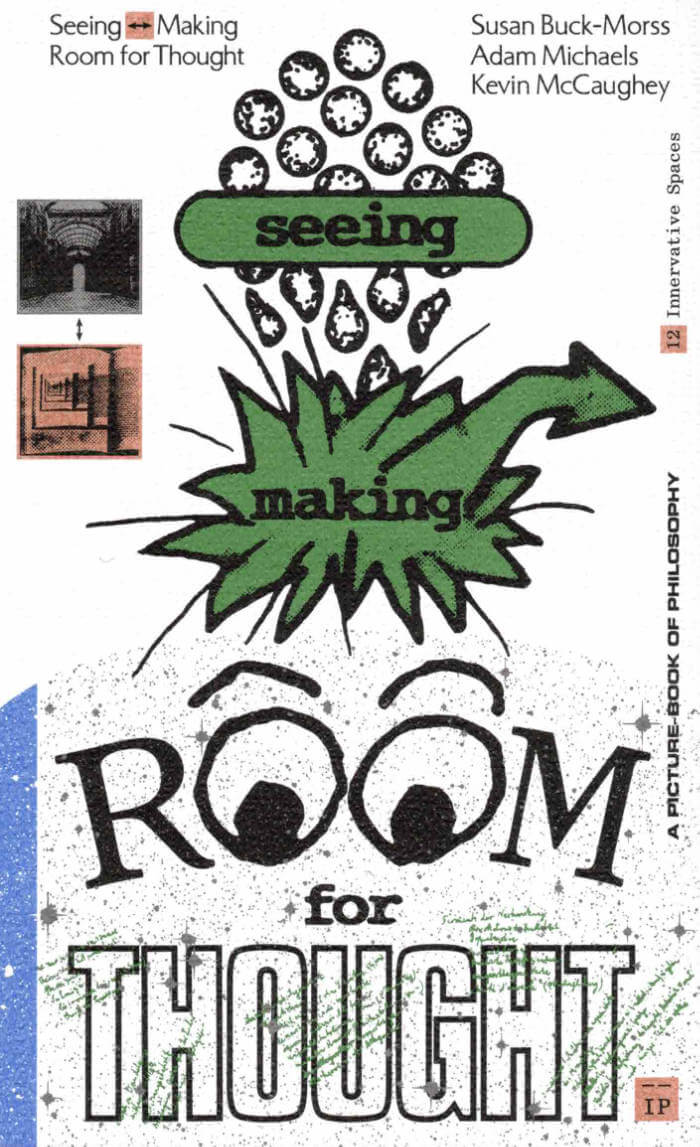
Seeing Making: Room for Thought
Adam Michaels, Kevin McCaughey and 1 more
Seeing <―> Making: Room for Thought both studies and presents the creative process of constructing ideas with images. By activating the techniques of montage, the book reveals a wide field of view and a space to engage new critical connection between a multiplicity of objects from the past and present. Realized through an intergenerational collaboration of three cultural producers committed to making theory visible, a transformative anthology of critical essays by Susan Buck-Morss anchors this kaleidoscopic project. Images and ideas sync with Buck-Morss’ perceptive texts on visual culture, history, politics, and aesthetics, fusing criticism with visual play and linking collective imagination and social action.
Building upon the methods and ways of seeing put forth by visual thinkers like Walter Benjamin and John Berger, designer Kevin McCaughey (Boot Boyz Biz), designer, editor, and publisher Adam Michaels (IN-FO.CO/Inventory Press), and renowned theorist Buck-Morss collectively assemble colliding material into new relation. What results is a (typo-) graphic articulation that thinks seriously about the stakes of ideation and reorients the space of the book in the service of a theory and philosophy that speaks the language of our image-based information age.

Wanting Something Completely Different – 111 Vignettes of Left-Wing Figures, Themes, Films, and Writers
A collection (montage) of biographies and themes written by Jairus Banaji.
Wanting Something Completely Different discusses a range of political figures, themes, directors and writers in a series of brief, evocative descriptions ('vignettes') aimed at laying out a vision of a modern, cosmopolitan left that can think creatively about the world we live in. The political figures include both thinkers and activists from a wide range of backgrounds—from Frantz Fanon and the Palestinian novelist Ghassan Kanafani to the theologian Dietrich Bonhoeffer and the murdered Russian journalist Anna Politkovskaya. The themes range equally widely from the death of Walter Benjamin (reconstructed here from a remarkable documentary on the same theme) and the slaying of Pasolini to the work of British Marxist Perry Anderson, or the corrupt nature of India's leading corporate groups, or the outstanding contributions of Italian and U.S. Black feminists to feminist theory. And under the rubrics which discuss film and literature, there is the same striving for diversity and depth.
The vignettes collected in this Rab-Rab book first circulated on Facebook over some seven years or more and are reproduced here with a new introduction and extensive bibliographical references and notes.
Jairus Banaji is a historian and revolutionary Marxist activist. He received the Isaac and Tamara Deutscher Memorial Prize in 2011. His academic work has ranged widely across sources and languages, with major books on Late Antiquity and commercial capitalism as well as numerous papers and articles.

Art et production
Art et production de Boris Arvatov fait partie des classiques oubliés des avant-gardes qui se sont épanouies durant la Révolution russe. Publié à Moscou en 1926, il vient porter le fer dans les débats qui agitent l’école constructiviste : que doit être le statut de l’art après la révolution, ses liens avec les techniques industrielles de reproduction, avec la critique de la vie quotidienne, comment doit-il entrer dans l’usine ? Autant d’interrogations radicales, témoignages d’une séquence politico-sociale bouillonnante. Une nouvelle conception de l’art émerge, qui laissera une empreinte indélibile sur une tradition de critiques matérialistes de la culture, de Walter Benjamin à Peter Bürger, en passant par Fredric Jameson, celle qui posera la question de l’articulation entre pratique artistique et logiques propres à la sphère de la production. Un document exceptionnel enrichi d’illustrations, paraissant en français pour la première fois, une porte prviliégiée sur un moment-clé de la modernité exthétique du XXe siècle.
Boris Arvatov (1896–1940) est un artiste et critique d’art russe. Il est notamment connu comme théoricien du productivisme, un mouvement d’avant-garde post-révolutionnaire lié au constructivisme.
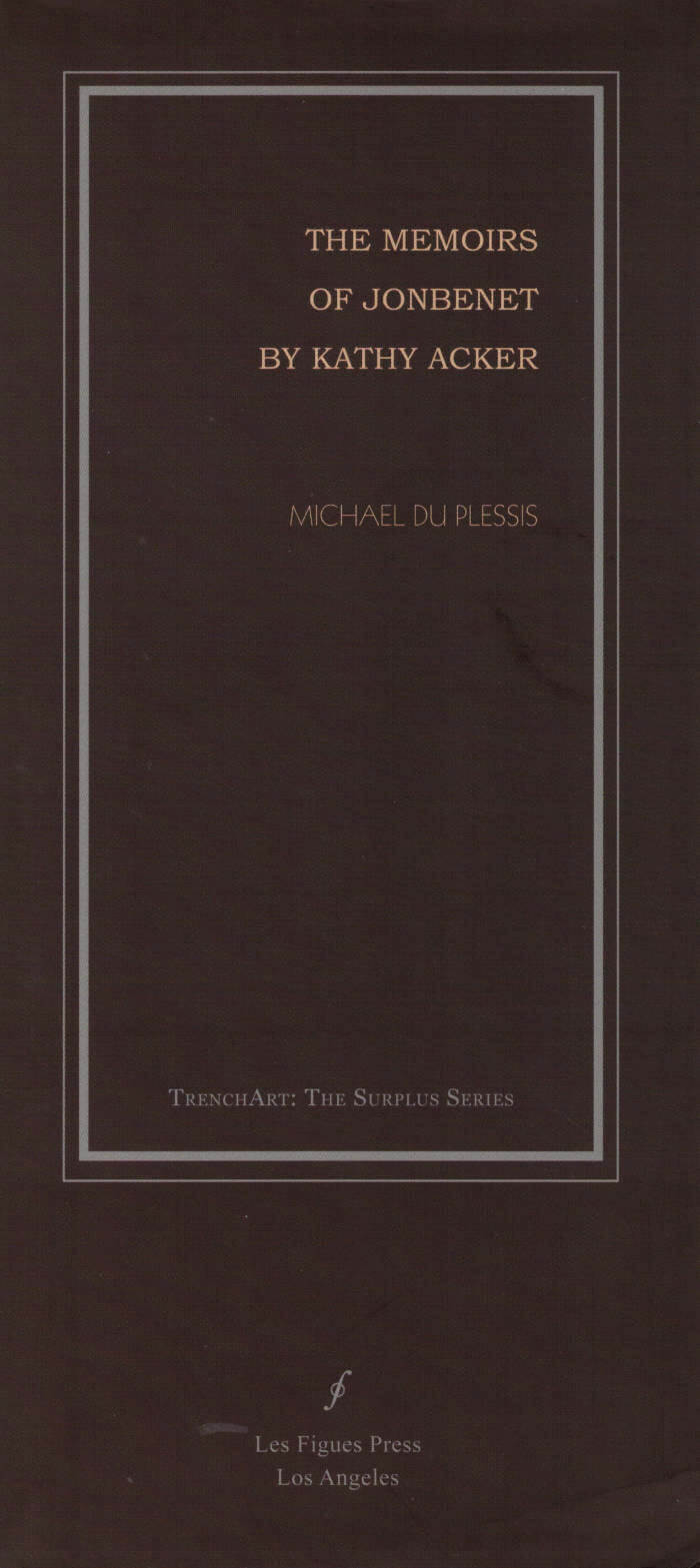
The Memoirs of JonBenet by Kathy Acker
JonBenet meets Kathy Acker in a rollicking coming-of-age tale set in the snow globe of Boulder, Colorado. With guest appearances by Little Lord Fauntleroy, H. P. Lovecraft, the Blue Fairy, a wind-up Walter Benjamin, a soft-toy Cthulhu, O (from Story of O), and many more. Neither tribute nor pastiche, The Memoirs of JonBenet by Kathy Acker investigates the "self" of very-late-capitalism in a collage of all that is right, and terribly wrong, in America.
The Memoirs of JonBenet by Kathy Acker is published as part of the TrenchArt: Surplus Series, with an introduction by Peggy Kamuf and visual art by Klaus Killisch.
Michael du Plessis teaches Comparative Literature and English at the University of Southern California, where he is also completing a masters degree in Professional Writing. Du Plessis has written about a wide variety of subjects, from Goth culture to the French fin-de-siècle. He has also performed at Highways and at the MAK Center/Schindler House, amongst other venues.
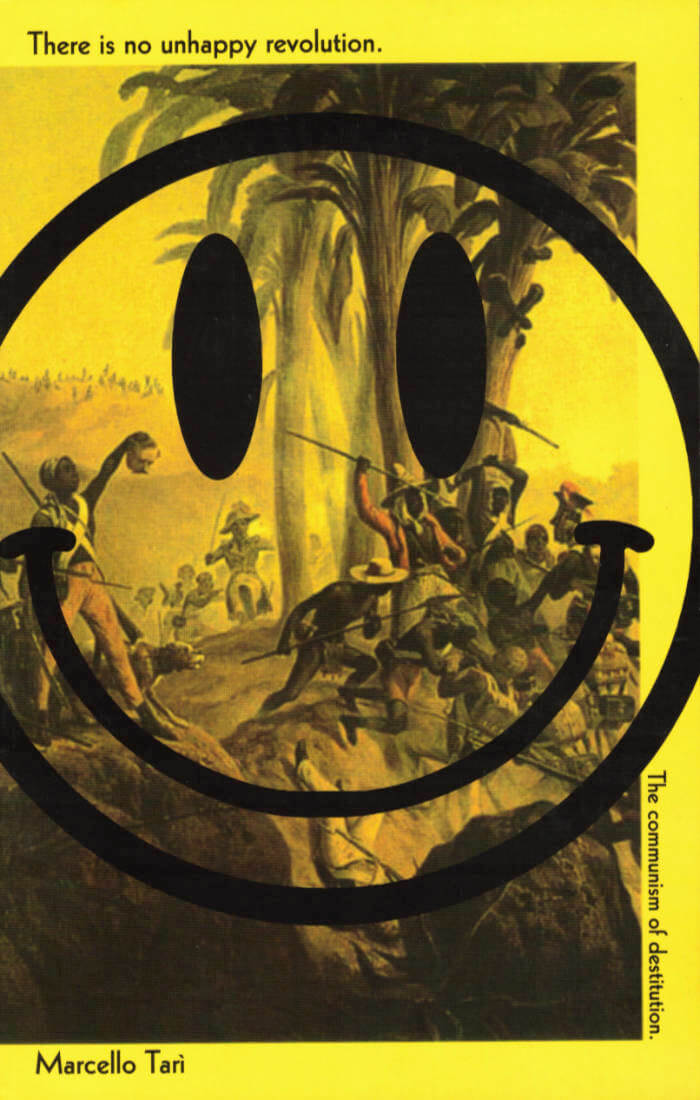
There Is No Unhappy Revolution: The Communism of Destitution
In a time of ongoing political, economic, and climate crisis, can we afford our collective unhappiness any longer? There is No Unhappy Revolution gives expression to the age of revolution unfolding before us. With equal parts sophistication and raw urgency, Marcello Tarì identifies the original moments as well as the powerful disruptive and creative content haunting our times like a specter.
One hundred years after the October Revolution, amidst our current civilizational crisis, is it still possible to think and build communism? Yes, Tarì responds, provided we radically rethink the tradition of revolutionary movements that have followed one century to another. Offering both a militant philosophy and a philosophy of militancy, he deftly confronts the different contemporary movements from the Argentinean insurrection of 2001 to Occupy Wall Street, the Spanish Indignados, the French movement against the labor law, and the Arab spring, resurrecting and renewing a lineage of revolutionary thought, from Walter Benjamin to Giorgio Agamben, that promises to make life livable.

Fleurs du Mal
Charles Baudelaire, Antoine D'Agata
For Charles Baudelaire, the photographic medium is not an art but a technical means of representing reality. As a counterpoint to Baudelaire, Antoine d’Agata reworks his own photographs through digital intervention to return to engraving, as if to go from the pixel to the line of the time. He pushes photography to its limits, discarding the medium to return to the raw. Baudelaire’s texts thus enter into dialogue with photographs that have become engravings through wear and tear and manipulation, where the bodies blend together to give way to the poetry of the body.
The work is based on the original uncensored edition of Baudelaire’s collection accompanied by these engraved prints by d’Agata. Present and past are superimposed. Like a game of transparency that will present the frame of an image on the cover. In this work Fleurs du Mal, Baudelaire is a stroller, a spectator of the world around him, of urban transformations, while d’Agata embodies photography, life and reappropriates the space of the city by the gesture.
Two personalities meet on the occasion of the 200 years of the birth of Charles Baudelaire. Two artists who could have meet each other, debated, confronted each other. For d’Agata, Baudelaire leaves a legacy that must be pushed to extend its own reflection.
The artist intervenes on the edge of Baudelaire’s poems with personal reflections and quotations from his favorite thinkers, descendants of Baudelaire’s thought: Walter Benjamin, Guy Debord or Georges Bataille.
Affixed vertically to the poems, these handwritten interventions assert themselves while leaving the original text its own space. A second sense of reading is thus offered to the reader between Baudelaire’s text and the interpretation given by d’Agata through the words as much as through the engravings.
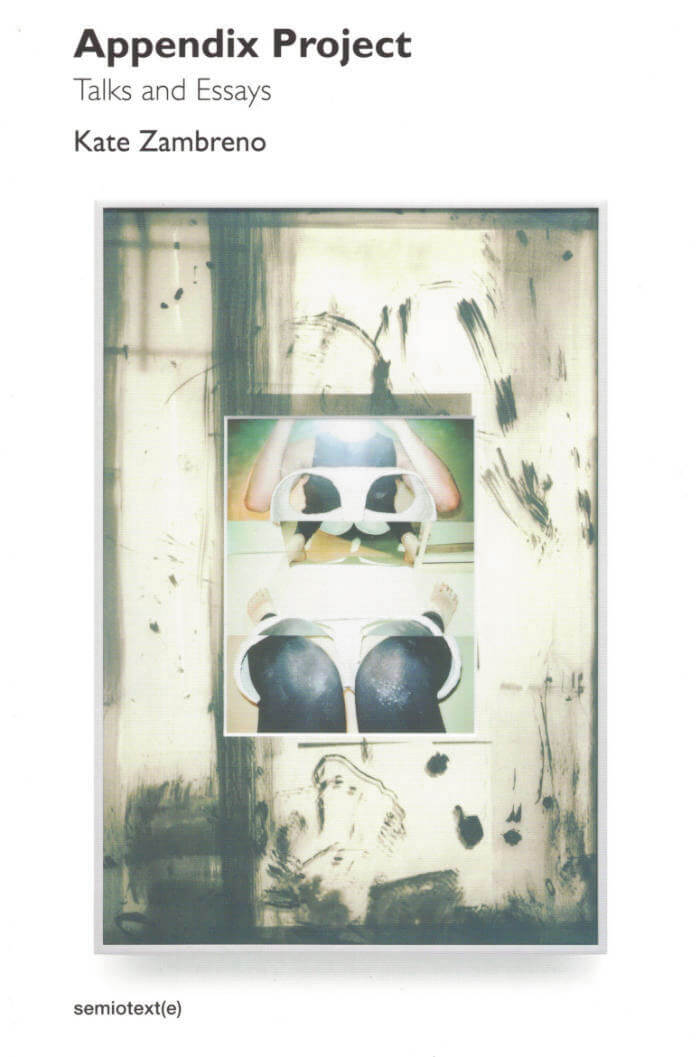
Appendix Project: Talks and Essays
Inspired by the lectures of Roland Barthes, Anne Carson, and Jorge Luis Borges, Kate Zambreno's Appendix Project collects eleven talks and essays written in the course of the year following the publication of Book of Mutter, Zambreno's book on her mother that took her over a decade to write. These surprising and moving performances, underscored by the sleeplessness of the first year of her child's life, contain Zambreno's most original and dazzling thinking and writing to date.
In Appendix Project Zambreno thinks through the work of On Kawara, Roland Barthes, W.G. Sebald, Bhanu Kapil, Walter Benjamin, Theresa Hak Kyung Cha, Marguerite Duras, Marlene Dumas, Louise Bourgeois, Doris Salcedo, Jenny Holzer, and more.
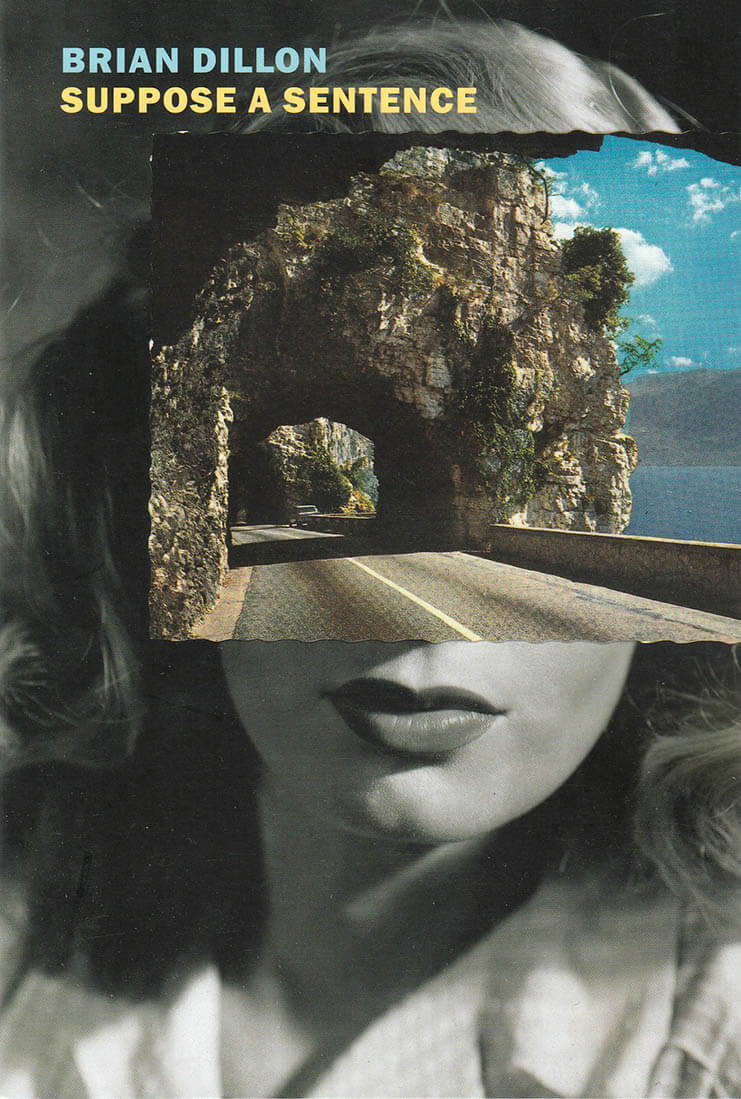
Suppose a Sentence
A captivating meditation on the power of the sentence by the author of Essayism, a 2018 New Yorker book of the year. In Suppose a Sentence, Brian Dillon, whom John Banville has called "a literary flâneur in the tradition of Baudelaire and Walter Benjamin," has written a sequel of sorts to Essayism, his roaming love letter to literature. In this new book Dillon turns his attention to the oblique and complex pleasures of the sentence. A series of essays prompted by a single sentence—from Shakespeare to Janet Malcolm, John Ruskin to Joan Didion—the book explores style, voice, and language, along with the subjectivity of reading. Both an exercise in practical criticism and a set of experiments or challenges, Suppose a Sentence is a polemical and personal reflection on the art of the sentence in literature. Whether the sentence in question is a rigorous expression of a state of vulnerability, extremity, even madness, or a carefully calibrated arrangement, Dillon examines not only how it works and why but also, in the course of the book, what the sentence once was, what it is today, and what it might become tomorrow.
Brian Dillon was born in Dublin in 1969. His books include The Great Explosion (short-listed for the Ondaatje Prize), Objects in This Mirror: Essays, I Am Sitting in a Room, Sanctuary, Tormented Hope: Nine Hypochondriac Lives, In the Dark Room, and with New York Review Books, Essayism. His writing has appeared in The Guardian, The New York Times, the London Review of Books, The Times Literary Supplement, Bookforum, Frieze, Artforum, 4Columns, and The Yale Review. He is the UK editor of Cabinet magazine and teaches creative writing at Queen Mary University of London.
Published 2020

The Blue Clerk
On a lonely wharf a clerk in an ink-blue coat inspects bales and bales of paper that hold a poet's accumulated left-hand pages—the unwritten, the withheld, the unexpressed, the withdrawn, the restrained, the word-shard.
In The Blue Clerk renowned poet Dionne Brand stages a conversation and an argument between the poet and the Blue Clerk, who is the keeper of the poet's pages. In their dialogues—which take shape as a series of haunting prose poems—the poet and the clerk invoke a host of writers, philosophers, and artists, from Jacob Lawrence, Lola Kiepja, and Walter Benjamin to John Coltrane, Josephine Turalba, and Jorge Luis Borges.
Through these essay poems, Brand explores memory, language, culture, and time while intimately interrogating the act and difficulty of writing, the relationship between the poet and the world, and the link between author and art. Inviting the reader to engage with the resonant meanings of the withheld, Brand offers a profound and moving philosophy of writing and a wide-ranging analysis of the present world.

The Lost Diagrams of Walter Benjamin
In A Berlin Chronicle Walter Benjamin describes his autobiography as a space to be walked (indeed, it is a labyrinth, with entrances he calls primal acquaintances). The contributors to The Lost Diagrams respond to the invitation to accompany Benjamin in reproducing the web of connections of his diagram, which, once lost (he was inconsolable), was never fully redrawn. They translate his words into maps, trees, lists, and constellations. Their diagrams, after Benjamin, are fragments, scribbles, indexes, bed covers, and body parts. Subjectivities sharpen and blur, merge and redefine, scatter and recollect. Benjamin writes: ‘Whatever cross connections are finally established between these systems also depends on the inter-twinements of our path through life’.
Contributors: Helen Clarke, Sam Dolbear, Sharon Kivland, Christian A. Wollin
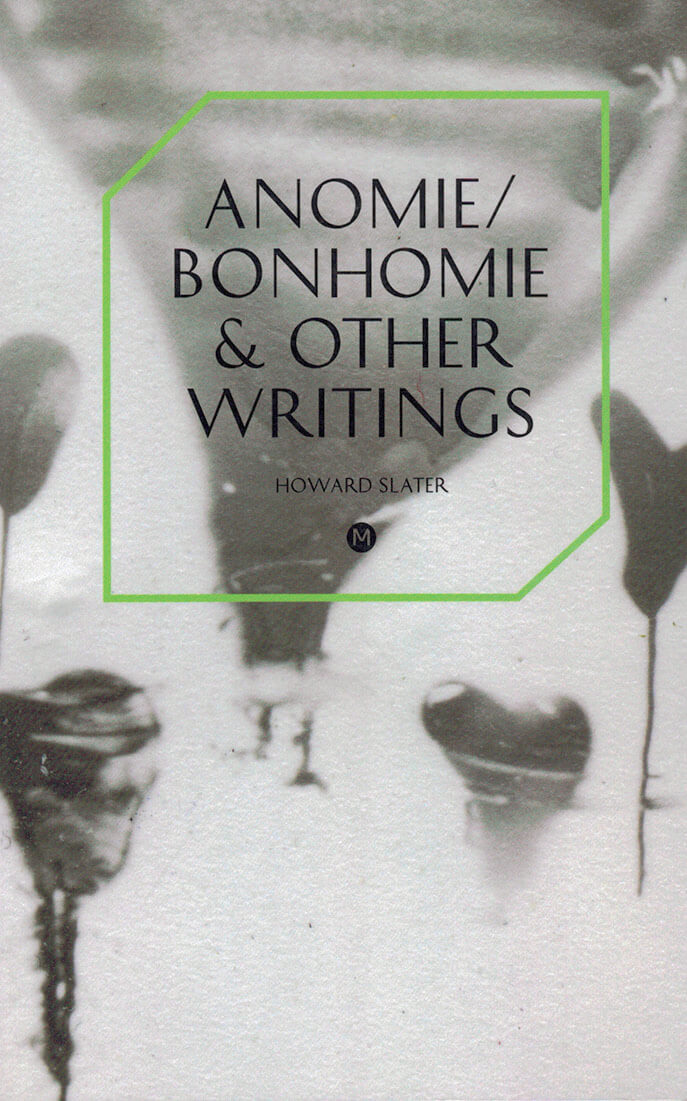
Anomie/ Bonhomie & other writings
In this collection of writings, Howard Slater improvises around what Walter Benjamin could have meant by the phrase 'affective classes'. This 'messianic shard' and its possible implications leads Slater to develop a therapeutic micro-politics by way of a mourning for the Workers' Movement and a grappling with the 'becomings of capital'.
The essay 'Anomie/Bonhomie' is the keystone of this book which also features tributary texts and poems drawn from the past ten years. These supplementary texts approach such themes as exodus, species-being, surrealist precedents, poetic language and the possibilities for collective 'affective' practices to combat capitalism's colonisation of the psyche.